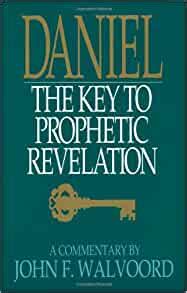A Quote by Timothy Keller
When we grasp that we are unworthy sinners saved by an infinitely costly grace, it destroys both our self-righteousn ess and our need to ridicule others.
Related Quotes
What will it cost [a person] to be a true Christian? It will cost him his self-righteousn ess. He must cast away all pride and high thoughts, and conceit of his own goodness. He must be content to go to heaven as a poor sinner, saved only by free grace, and owing all to the merit and righteousness of another.
There is no grace more excellent than faith; no sin more execrable and abominable then unbelief. Faith is the saving grace and unbelief the damning sin. (Mark 16:16) ... Before Christ can be received, the heart must be emptied and opened: but men's heart's are full of self-righteousn ess and vain confidence (Rom 10:3).
One thing I have learned in institutions is not to press hard on the fact that their inmates are, like the rest of mankind, sinners; for they, like many others, are liable to confuse the generic term "sinner" with the specific term "criminal." Most of us are so accustomed to admit that we have fallen short of grace and are "miserable offenders," in view of our possibilities and opportunities, that we do not resent being called "sinners"; but not so with our congregation.
This is our Lord’s will, that our prayer and our trust be both alike large. For if we trust not as much as we pray, we do not full worship to our Lord in our prayer, and also we tarry and pain our self. The cause is, as I believe, that we know not truly that our Lord is Ground on whom our prayer springeth; and also that we know not that it is given us by the grace of His love. For if we knew this, it would make us to trust to have, of our Lord’s gift, all that we desire. For I am sure that no man asketh mercy and grace with true meaning, but if mercy and grace be first given to him.
We Protestants automatically assume that the Pharisees are the Catholics. They are the self-righteous people who have made Christianity a form of legalistic religion, thereby destroying the free grace of the Gospel. We Protestants are the tax collectors, knowing that we are sinners and that our lives depend upon God's free grace.
It’s in our interest to take care of others. Self-centrednes s is opposed to basic human nature. In our own interest as human beings we need to pay attention to our inner values. Sometimes people think compassion is only of help to others, while we get no benefit. This is a mistake. When you concern yourself with others, you naturally develop a sense of self-confidence . To help others takes courage and inner strength.
Emotional dependence is the opposite of emotional strength. It means needing to have others to survive, wanting others to "do it for us," and depending on others to give us our self-image, make our decisions, and take care of us financially. When we are emotionally dependent, we look to others for our happiness, our concept of "self," and our emotional well-being. Such vulnerability necessitates a search for and dependence on outer support for a sense of our own worth.
His great act of condescension in becoming man and His willingness to be completely humiliated in the death on the cross is set before us here as the supreme example of what our attitude should be. If Jesus Christ the Lord of glory was willing to be obedient unto death, how much more should sinners saved by grace who owe everything to God give back to the God who saved them the life which He has redeemed.
































